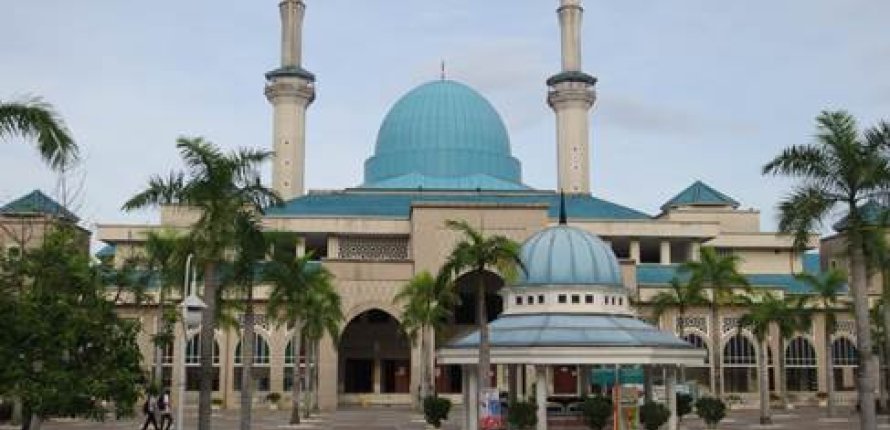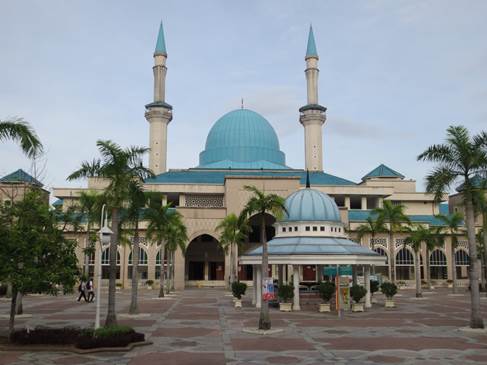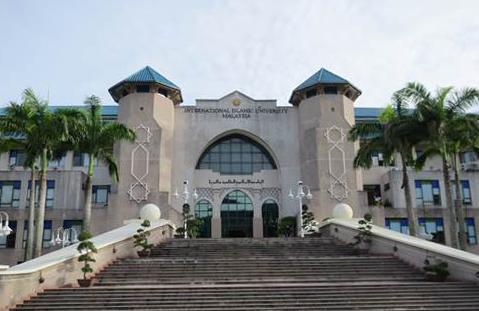Observing the Study of Comparative Religion in Malaysia

Jeffrey Kenney, Professor of Religious Studies at DePauw University
2012-2013 Core Fulbright U.S. Scholar to Malaysia
 When I started to explore Fulbright opportunities, my focus was on the Middle East, where I had done a good deal of research in the past. But then I read about Malaysia’s interest in hosting Fulbright scholars with expertise in Islamic studies and became intrigued by the possibilities.
When I started to explore Fulbright opportunities, my focus was on the Middle East, where I had done a good deal of research in the past. But then I read about Malaysia’s interest in hosting Fulbright scholars with expertise in Islamic studies and became intrigued by the possibilities.
As a scholar of Religious Studies, with a specialization in Islam, my knowledge of Southeast Asia was limited. I had read a bit about Indonesia in graduate school and recognized its importance as the most populous Muslim country. Malaysia, however, was completely off my intellectual radar. It didn’t remain that way.
After a bit of background reading, I became fascinated with the country’s modern development, especially the Islamic resurgence that so dramatically impacted the private life of Malays and the public life of the entire multi-ethnic, multi-religious nation. I then made contact with scholars at the International Islamic University Malaysia (IIUM) in Kuala Lumpur, my future host institution, and mapped out a research agenda to study the way comparative religion is taught in Muslim-majority Malaysia.
 My Fulbright year resembled an immersion study-abroad experience. I lived in faculty housing at the International Institute of Islamic Thought and Civilization (ISTAC), a graduate school and think tank affiliated with IIUM. Each day for two semesters, I traveled by bus with other students from ISTAC, where I also sat in on some classes, to the main IIUM campus to attend classes in the Department of Usul al-Din [Theology] and Comparative Religion. Each semester I also team-taught a graduate course in the same department. Interviews with students, faculty, staff, and public intellectuals filled out my ethnographic research.
My Fulbright year resembled an immersion study-abroad experience. I lived in faculty housing at the International Institute of Islamic Thought and Civilization (ISTAC), a graduate school and think tank affiliated with IIUM. Each day for two semesters, I traveled by bus with other students from ISTAC, where I also sat in on some classes, to the main IIUM campus to attend classes in the Department of Usul al-Din [Theology] and Comparative Religion. Each semester I also team-taught a graduate course in the same department. Interviews with students, faculty, staff, and public intellectuals filled out my ethnographic research.
It is difficult to capture the impact my experience in Malaysia has had on my teaching and research. As a graduate student, I had learned that the teaching of religion is always embedded in the history and culture of a country. Sitting in on classes at IIUM brought this insight home in a new way and reminded me of my own professional assumptions as a scholar of religious studies in the West. As a result, my understanding of “objectivity” and “truth” has been challenged and enriched. I hope to do the same for students on my campus in the United States, drawing on my research and interactions in Malaysia as a case study.
The end of my Fulbright was actually a new beginning for my professional development. I gained intimate knowledge of a different Muslim culture and fresh direction for scholarly activity, the fruits of which are just starting to mature. For example, my classroom experience in Malaysia inspired me to write a few articles on the scholarship of teaching, a kind of academic work that I had never considered before. And drawing on my ethnographic research, I am also writing an account of the historical and cultural conditions that contribute to the way comparative religion is taught in the country.
Now Malaysia, along with the Middle East, occupies an important place in my mental landscape. I have returned on several occasions to engage with colleagues and reconnect with friends. With any luck, I will continue to do so for the remainder of my career.
A Fulbright can be rewarding at any stage of a career, leading to undreamt opportunities and renewed outlook on life. I wish I had done it earlier…and hope to do it again.
